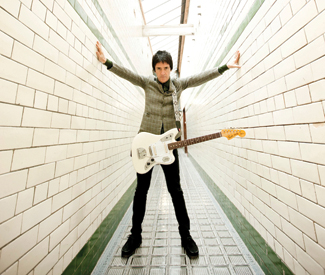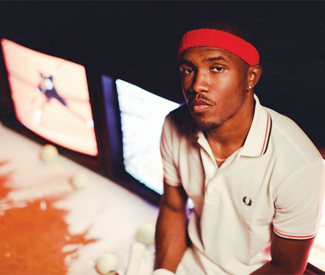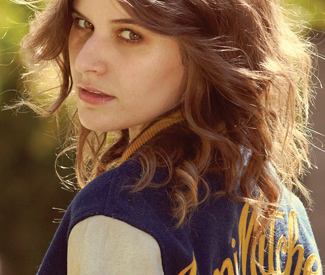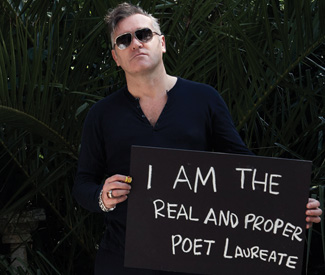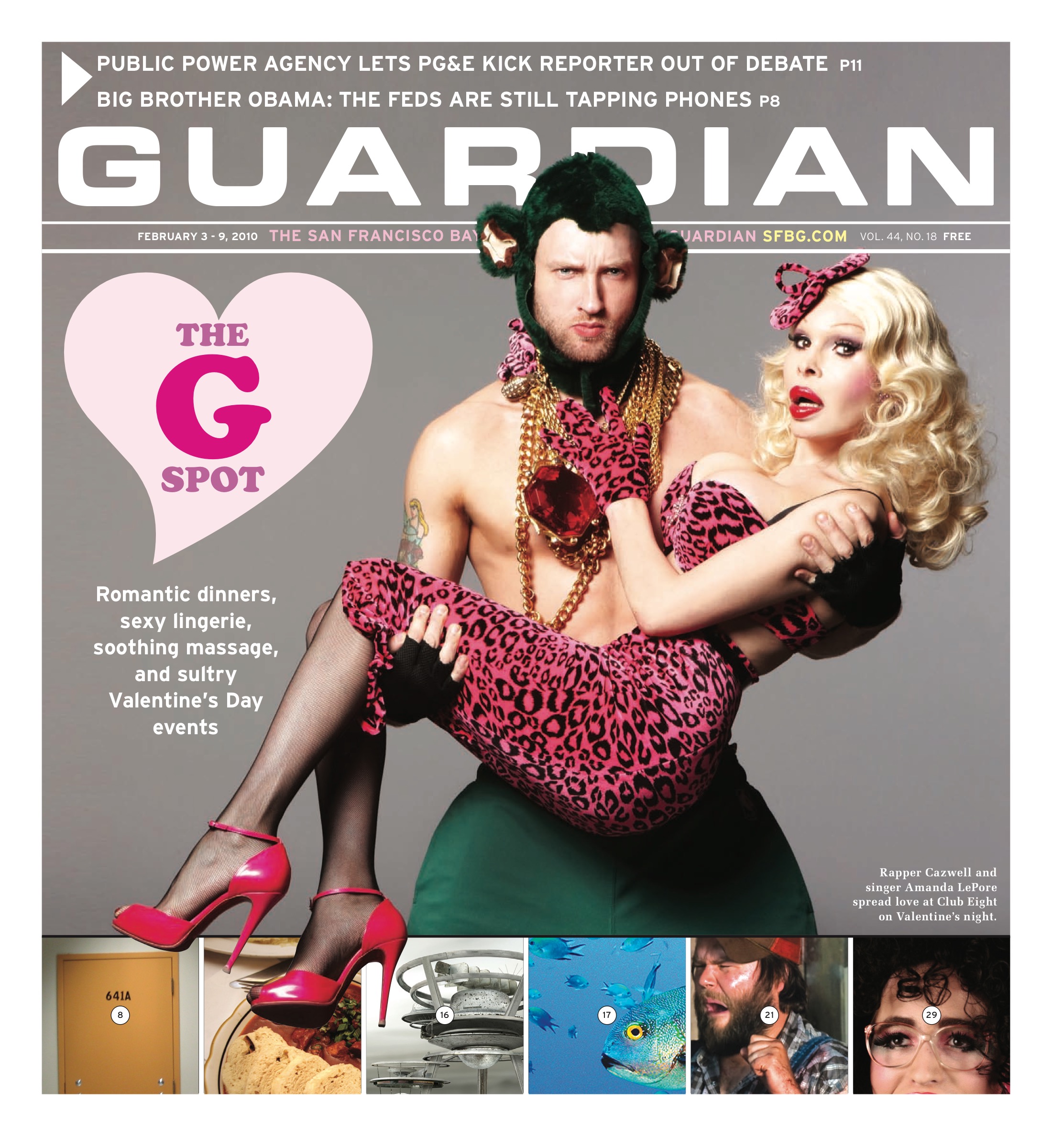Hot Chip’s Joe Goddard has had one helluva year. He and his bandmates released their highly-anticipated LP One Life Stand in February and took a massive risk by going for a more streamlined, cohesive sound.The gamble payed off: the disc has received generally positive reviews and the group has spent the latter part of 2010 criss-crossing the globe, including a Sun/17 stop at the Warfield. Just a few months removed from a triumphant American headlining tour that was supported by critical darlings the XX, the Londoners are back opening up for their longtime friends LCD Soundsystem and playing some of the American biggest gigs of their career. Throw in the birth of his first child and a hectic DJ schedule, the Guardian was lucky to grab a quick word with the Hot Chip main man at his home in London.
San Francisco Bay Guardian: Considering how high expectations for One Life Stand were, how are you feeling about it now that it’s been out for a while?
Joe Goddard: It feels good. It was a stressful process, but it seems to have gone down quite well. Honestly, when I get done making an album, I always get a little bit tired of it and want to move on to the next one, so I really haven’t listened to it much myself. That said, the shows have been going well, and people seem to really enjoy the new tracks in the live setting. I don’t exactly know what people’s opinions are, but I guess people have been enjoying it, which makes me happy [laughs].
SFBG: As it should! As far as the album goes, it definitely seems like the new record is different stylistically to the older material. The tracks seem a little more accessible and light than some of older tracks. Was that a conscious decision, or did it come about naturally?
Goddard: I think all of us wanted to make the tracks on this record a little more streamlined and coherent, you know, a little bit more polished. On some of the previous things we’ve done, there have been layers-upon-layers of synthesizers and really intricate rhythms and percussion, and those sorts of elements. I kind of wanted to do something that didn’t rely on hundreds of layers and strip back the songs so they sound more focused and simple. We also really focused on making the songwriting as strong as possible and for the production to stand up to the songwriting. That was really our aim. I guess I just felt like doing something that sounded more direct, a bit more easy to understand, just something a little bit more straightforward.
In my mind, we were kind of refrencing the great kind of pop stances that you would get in the 80s where you’d get these big kind of epic, emotional songs — like Womack and Womack or Fleetwood Mac — these big polished pop songs that are making a big emotional statements. I feel like those songs are coming back round again, and I guess we were just hoping that people wouldn’t get too pissed off for doing something like that [laughs]. Having done that, I’d really like to do something completely different and more unrestrained for our next project.
http://www.youtube.com/watch?v=MaCZN2N6Q_I
SFBG: As far as the songwriting goes, how do you and [co-vocalist] Alexis Taylor break it up? Do you write the tracks together or by yourselves?
Goddard: There isn’t really a formula to it. Basically, either myself or Alexis will come up with something and just send it to the other one. From there, we’ll work on it together. Sometimes its almost a complete song, but sometimes it’s just a fragment of a song. It used to be that we would just sit in each other’s houses, but now its mostly just over email. As far as the lyrics go, generally whoever is singing a particular part tends to have written it. Sometimes I’ll write all the lyrics for a track, sometimes [Alexis] will write all the lyrics for the track, and sometimes we’ll collaborate. We never sit down and have a lyric writing session together where we come up with couplets or anything like that. Actually, I don’t think I’ve ever even asked Alexis what the lyrics to a track of his mean. I can make informed guesses about it, but they’re very personal and sometimes actually quite secret.
SFBG: Speaking of lyrics, it seems much more emotionally direct than your previous work. Did that go along with your musical direction?
Goddard: Yeah. I think that most of the record is more emotionally direct. That is partly due to the fact that we were trying to do something that was direct, and we really tried to follow that through in terms of lyrical content as well. We just wanted to let the songs say what they wanted to say, instead of being obtuse or hiding the meaning. Also, it was how we were feeling as people at the time we were making the record. We very kind of focused on our relationships, our home lives, and families, so there’s a lot of love on this record.
SFBG: How are those new, more direct, emotional tracks going over live?
Goddard: Well, I’ve got to preface this by saying that I’ve had six weeks off from playing live, because I recently had my first child. When I come back to play this October, it’ll be my first gigs in two months. From the touring I did before, I really enjoyed playing things like “Brothers” and “Alley Cats” — not only because I wrote most of those tracks — but they’re more emotionally open than most of the stuff I’ve done in the past. Although I guess you could go back to a few of the tracks from the older records and say that, but these are the ones that are fairly explicitly about my relationships and personal life.
For example, “Brothers” is clearly about my relationship and love for my brother, but I also wanted that song to also mean the brotherhood of being in the band and the brotherhood of a group of friends. The song “Alley Cats” is incredibly personal, it mentions the death of my mother. It feels great to be expressing myself with the guys that I’ve been friends with for over 20 years, and I often get quite emotional performing those songs. Of course, it is fun to do the bigger tracks like “One Life Stand” and “I Feel Better”, but I’ve really been enjoying the gentler moments in the set.
SFBG: Obviously, yourselves and LCD Soundsystem have a long history with [Hot Chip multi-instrumentalist] Al [Doyle] touring with them. Are you looking forward to getting back out on the road with them?
Goddard: It feels fantastic. It’s just a really great way to end the year. They are really just great, old friends of ours, and it’ll be great to have a drink with them, you know, and it’ll just be really comfortable. Most of us are about the same age — well, I guess James [Murphy] and Pat [Mahoney] are a just a bit older. We toured with them in the UK about five or six years ago and really learned a lot about touring with as a live, electronic rock band. They taught us a lot on that tour. I’m very much looking forward to doing it again.
I feel like both bands are established enough now that we can both just have fun and do our thing. Whereas a couple of years ago, I was trying more to get people into the music, now I’m really quite happy with what we’re doing and where we are. This tour is going to be a celebration of what we’ve achieved. They should be fun shows where people are just going to want to dance and have a good time.
http://www.youtube.com/watch?v=wif8DAyXkVc
SFBG: A couple of years ago, you guys closed out some California shows with a cover of the classic “Nothing Compares 2 U”. Can we expect a new cover to sneak its way into your set?
Goddard: Actually, we have been talking about it and trying to figure out something to do. We haven’t quite figured it out yet, but I think they’ll definitely be a little surprise. Alexis has made a few suggestions and we’re trying to work something out at the moment.
SFBG: Real quick, can you just give us some background of your recently-released remix EP, We Have Remixes? How did you end up choosing the four tracks that you did?
Goddard: We really just tried to choose remixes that we’re really excited about by people that are either personally friends of ours in terms of Hot City, Osborne, and Caribou or people that we really admire. I think Todd Edwards is just a fantastic producer, who creates really musical, intelligent, danceable tracks and we love what he did. There’s obviously been some great other remixes, but this was just a collection of four that have come about over ht last few months that were so good it just made sense to put them out on vinyl.
http://www.youtube.com/watch?v=Ylldl_jsMMI
SFBG: Speaking of vinyl, you also spend lots of your time DJing. What’s better an awesome gig or a great club night?
Goddard: Hmmm, it’s hard to pick one, because I really love doing both. I think an incredible live gig kind of beats anything, but the nice thing about DJing is, since its just you, if you have a good night and the crowd has a good time you feel like its a real personal achievement. I mean, it’s hard to pick between the two. I just love doing both of them.
SFBG: No worries. Lastly, since you are a DJ, what have you been listening to and spinning recently? Got any recommendations?
Goddard: The most recent things I’ve been listening to are just lots of new 12-inches. Really, just a lot of new UK dance music, like a lot of garage that’s been influenced by techno. There’s this new UK producer called DJ Naughty, who has a wonky garage record called “Goosebumps” that’s really funky and fun. Another DJ called Red Rack’em just released this 12 inch called “How I Program” which is really good. I’ve also been listening to a ton of Hot City. I’ve been DJing quite a lot, and that’s really what I’ve been focusing on.
SFBG: Great! I really appreciate your time, and we’ll look forward to seeing you at the Warfield.
Goddard: Not a problem. Thanks a lot!
HOT CHIP
with Sleigh Bells
Sun/17, 9 p.m., $32.25
Warfield
982 Market, SF
www.thewarfieldtheatre.com


